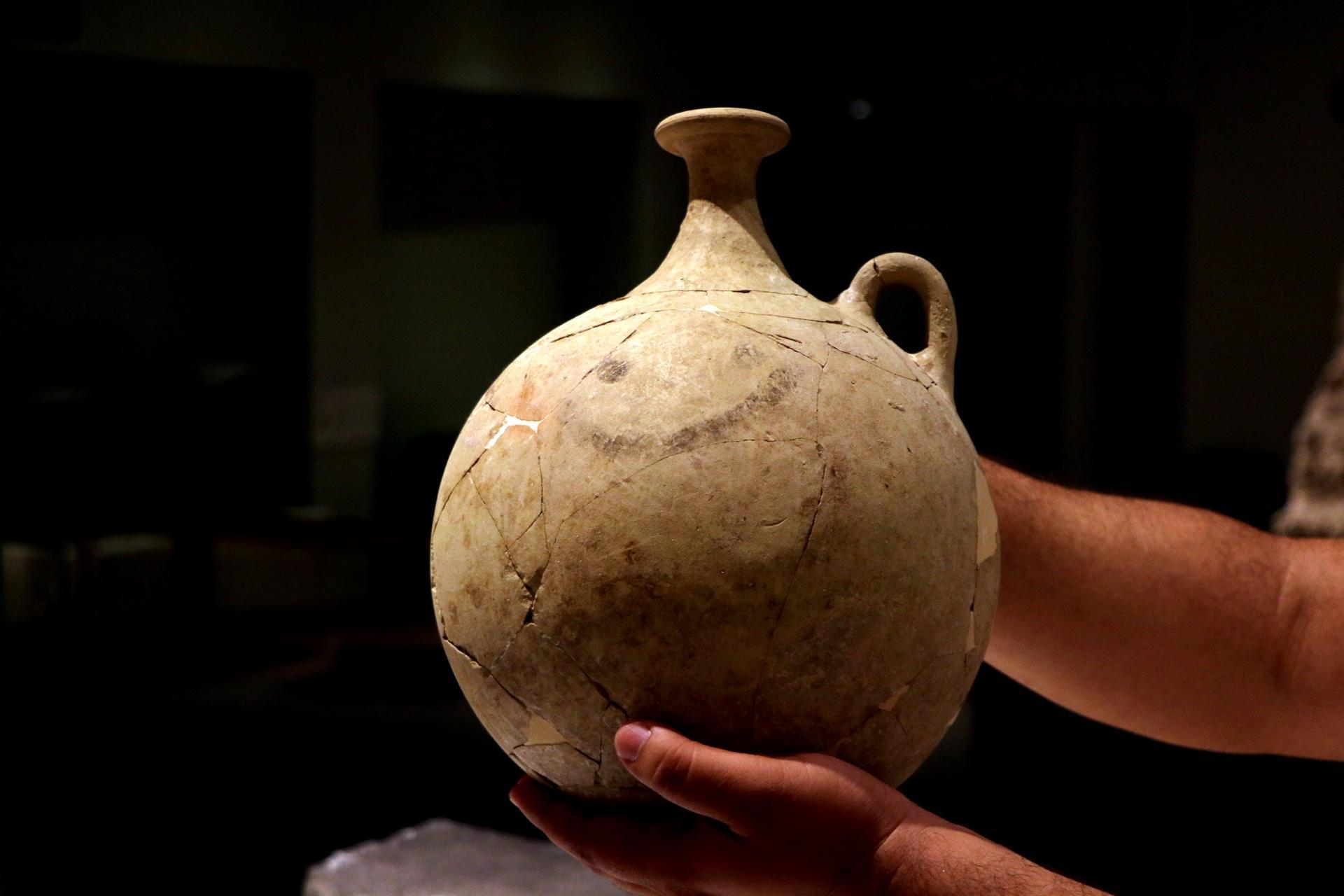World’s oldest 'smile emoji' comes to archaeology museum
GAZİANTEP

A 3,700-year-old water bottle, which was unearthed in the ancient city of Karkamış in the southeastern province of Gaziantep about four years ago and has a “smile emoji” on it, will be displayed at the Gaziantep Archeology Museum.
At the end of the month, visitors will be able to see the bottle, which will be placed in the section reserved for the artifacts unearthed during the Karkamış excavations at the Gaziantep Archeology Museum.
Speaking to the state-run Anadolu Agency, Özgür Çomak, the museum’s director, said that Karkamış was one of the most important ancient cities in the world, and excavations have been carried out in the ancient city from time to time since the Republican era.
Stating that Karkamış, located on the banks of the Euphrates, was the capital of the Hittite period, Çomak said that excavations have continued in the ancient city by Professor Nikolo Marchetti.
Çomak stated that among the unearthed artifacts, there was a water bottle with a smile emoji on it.
“A single-handled bottle, which is made of terracotta, dates back to the Middle Bronze Age. It is an artifact from about 3,700 years ago. It is our first artwork with smiling emoji in the world,” Çomak said.
Stating that the artifact will be placed in the museum by the end of July, Çomak said: “We have completed all the museum work for this artifact. It was found in many pieces and has been restored.”
Highlighting that he received very good comments when he shared the artifact on social media, Çomak said, “The fact that the emoji we use every day in our daily lives is a smile from 3,700 years ago, of course, creates curiosity.”
Excavations in the ancient city of Karkamış, the southern capital of the Hittite Empire, which ruled in Anatolia in the second millennium B.C., has been carried out by Italy’s Bologna University Archaeology Department Professor Marchetti and Istanbul University’s Associate Professor Hasan Peker under the scientific consultancy of Istanbul University’s Professor Refik Duru and Professor Belkıs Dinçol and Gaziantep University’s Professor Mustafa Özakça.
















